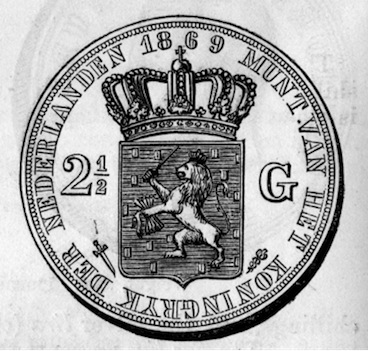The euro, a risk to the Dutch economy
The euro, a risk to the Dutch economy
During last year’s European election campaign, the SP took some stick for our critique of the introduction of the euro. Without the euro, the Labour Party argued, the Netherlands would be the Iceland of the EU. So what has happened since? Sweden, which retained its own currency, the Krona, is growing at a rate 4.5% faster than the European average. At the same time the financial markets are becoming extremely nervous and have dumped large quantities of Greek, Portuguese and Irish government bonds, and a new euro-crisis is far from unthinkable. As far as I’m concerned all talk of the euro as a means of assuring our economic position should therefore cease immediately. It seems much more likely that the euro could drag us into the next currency crisis.

The Dutch guilder (source: wikipedia)
In recent years Sweden has followed a different path to that chosen by most European countries. Conditions of employment have been eroded to a lesser extent than is the case elsewhere and there is, for example, far less ‘flexibilisation’ of work. Sweden values the experience gained by workers who remain for a long period with the same employer or in the same sector. Employers are also happy with this, investing in their workforce because they know that it means that people will then stay on and their know-how will not be lost. ‘Flexible’ workers are by definition much less attached to a particular firm and so much less is invested in them. This was very clear during today’s demonstration of postal workers in Rotterdam: the loss of quality in postal services is directly linked to the change from professionals to ‘flexible’ workers who lack both experience and specific training.
Taxes in Sweden are relatively high, in exchange for which Swedes receive relatively good social provision and services. This maintained purchasing power during the crisis and the economy took fewer blows than, for example, in Ireland where the government has imposed draconian cuts. Consumer confidence in Sweden is even at an unprecedented high.
Sweden chose to remain outside the eurozone. If what Labour and other parties were saying last year was to be believed, Sweden should now be bankrupt, because without the protection of the euro the situation could not have been saved. But what turned out instead was that Sweden’s exports are growing rapidly, by 13% during the second quarter of 2010, while the Swedish Krona is rising steadily in value. The reason is that investors have confidence in the Swedish economy and the Swedish currency.
How different is the situation in the eurozone. As we in the SP predicted, draconian cuts in Greece and Ireland, and to a lesser extent in Spain, are leading to economic shrinkage in those countries. Investors see that the gap between countries such as the Netherlands and Germany on the one hand and the southern European countries and Ireland on the other is growing ever greater, and their confidence in the latter is being permanently undermined and governments of these countries are forced to pay ever higher rates of interest on their loans.
It is extremely doubtful that any of this will go any better in the longer term. Are we prepared to be continually dipping into our pockets to pay for the eurozone’s weaker economies? And, looked at from the other side, are the people of these countries prepared to make sacrifice after sacrifice to pay for a crisis which was not of their own making? Eventually, I expect, the EU’s emergency funds will no longer be sufficient to absorb all of the blows, while whether countries like Germany and the Netherlands will be prepared to put still more billions into supporting other eurozone countries is certainly open to question. This factor, coupled with the growing social protests in the countries of the eurozone where things have gone badly, will lead to an extremely unstable situation. This means that there’s only one possible conclusion, that the guilder wasn’t such a bad idea after all.
- See also:
- Dennis de Jong
